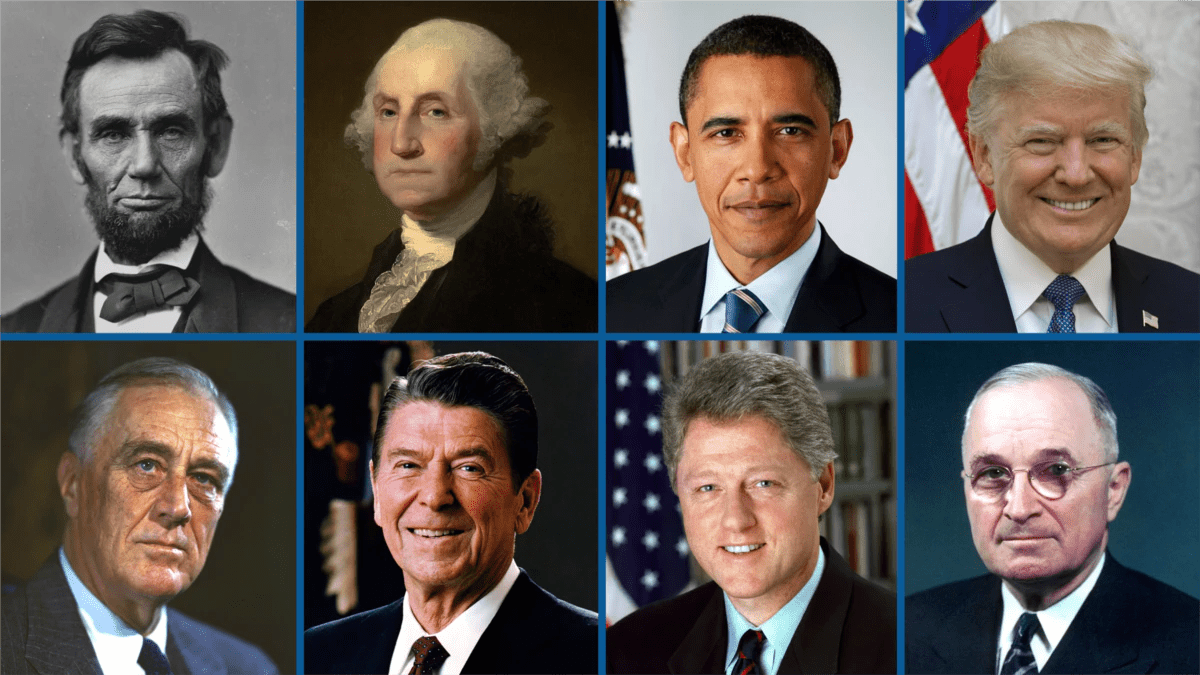Who Was The Best President Ever In The United States?
The question of who was the best president ever in the United States is a topic that sparks intense debate among historians, political analysts, and citizens alike. Various factors contribute to this discussion, including the president's policies, leadership style, and the historical context in which they governed. In this article, we will explore the criteria for determining the best U.S. president, examine several key figures in American history, and present arguments for who might hold this esteemed title.
Different eras in American history have produced various challenges and opportunities, influencing how presidents are evaluated. For example, the Civil War, economic crises, and civil rights movements have all shaped the legacies of those who occupied the White House. By understanding these contexts, we can better appreciate the complexities of presidential leadership.
Ultimately, the title of "best president" is subjective and depends on individual values, priorities, and interpretations of historical events. In this article, we will delve into the lives and legacies of several presidents, assessing their impacts on the nation and discussing their qualifications for this honor.
Table of Contents
Criteria for Determining the Best President
To fairly assess who the best president might be, we must establish criteria that reflect effective leadership. Key factors include:
- Impact on the Nation: How did the president's policies shape the country?
- Leadership Style: Was the president able to inspire and unite people?
- Historical Context: Did the president effectively respond to contemporary challenges?
- Long-Term Legacy: How do historians and the public view the president's contributions today?
Abraham Lincoln: A Champion of Unity
Abraham Lincoln, the 16th president of the United States, is often heralded as one of the greatest leaders in American history. His presidency was marked by the Civil War, a tumultuous period that tested the very fabric of the nation.
Lincoln's Achievements
- Preservation of the Union during the Civil War.
- Emancipation Proclamation, which paved the way for the abolition of slavery.
- Promotion of the Thirteenth Amendment, ensuring freedom for all.
Lincoln's ability to communicate and resonate with a divided nation showcased his exceptional leadership. His commitment to equality and unity left an indelible mark on American history.
George Washington: The Founding Father
George Washington, the first president of the United States, is often credited with setting the foundation for the presidency and establishing many norms still in place today.
Washington's Contributions
- Leading the Continental Army to victory in the Revolutionary War.
- Setting a precedent for future presidents by voluntarily stepping down after two terms.
- Fostering national unity and promoting the idea of a democratic government.
Washington's leadership during the nation's formative years was crucial in shaping the United States into a stable and enduring republic.
Theodore Roosevelt: The Progressive Reformer
Theodore Roosevelt, the 26th president, is known for his progressive policies and vigorous leadership style. His presidency marked significant social and economic reforms.
Roosevelt's Impact
- Implementation of the Square Deal, focusing on consumer protection and conservation.
- Trust-busting efforts to regulate monopolies and promote fair competition.
- Advancement of labor rights and environmental conservation.
Roosevelt's dynamic approach to leadership and commitment to social justice earned him a lasting legacy as a champion of the common man.
Franklin D. Roosevelt: Leading Through Crisis
Franklin D. Roosevelt, the 32nd president, faced the Great Depression and World War II, two of the most significant challenges in modern history.
FDR's Leadership During Crises
- Creation of the New Deal programs to alleviate economic hardship.
- Strong leadership during World War II, fostering alliances and mobilizing the nation.
- Expansion of social safety nets and the role of government in economic recovery.
FDR's ability to inspire hope and implement large-scale reforms solidified his reputation as one of America's most impactful presidents.
Barack Obama: A New Era of Leadership
Barack Obama, the 44th president, made history as the first African American to hold the office. His presidency signified a shift in American politics and culture.
Obama's Achievements
- Passage of the Affordable Care Act, expanding healthcare access.
- Promotion of economic recovery following the 2008 financial crisis.
- Advocacy for social justice and civil rights.
Obama's presidency is characterized by efforts to unite a diverse nation and address contemporary issues through progressive policies.
Public Opinion and Polling on Presidential Greatness
Public opinion polls often provide insight into which presidents are viewed as the greatest. Surveys conducted by organizations such as C-SPAN and the American Political Science Association consistently place Lincoln, Washington, and Roosevelt at the top of their lists.
Factors influencing public opinion include:
- Historical context and relevance of policies.
- Media portrayal and public perception.
- Long-term effects of presidential decisions on American society.
Conclusion
Determining who was the best president ever in the United States is a complex task that requires consideration of various factors. While figures like Abraham Lincoln, George Washington, and Franklin D. Roosevelt often emerge as frontrunners, the debate is ultimately subjective and shaped by individual perspectives.
As we reflect on the legacies of these leaders, it's essential to recognize the profound impact of their decisions on the nation. We invite you to share your thoughts on this topic in the comments below, and feel free to explore more articles on our site for deeper insights into American history.
Thank you for reading, and we hope to see you back here for more engaging discussions on leadership and history!
Also Read
Article Recommendations



ncG1vNJzZmivp6x7tMHRr6CvmZynsrS71KuanqtemLyue8GlpqeclaOyuL%2BQb2awoJ9ixKK%2FjK2fnmWSmsC1ec%2BrnKyhlJq7tXnEr5yrZZmjerW0xGasp6GkmrFuv9Oaq56rXp3Brrg%3D
